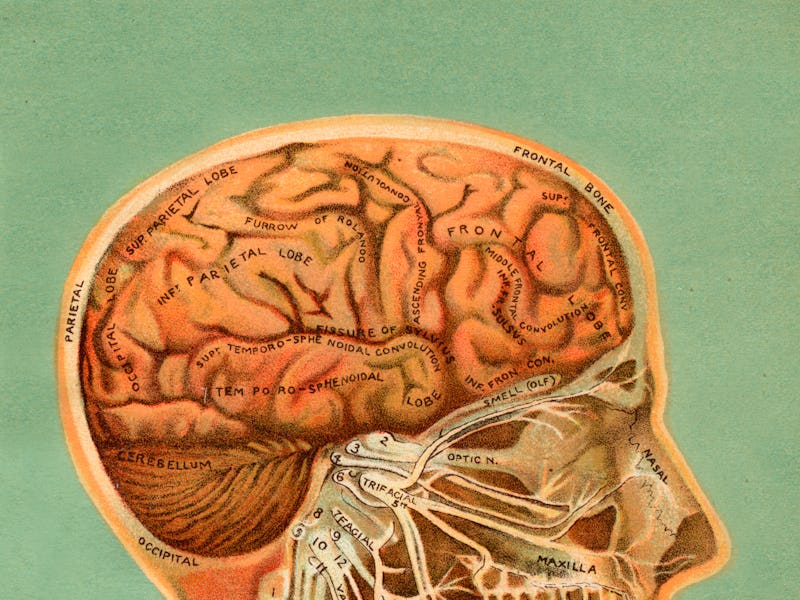10 minutes of this accessible exercise may result in a better brain
While it's known that exercise can improve mental health, scientists are still learning exactly why.

Humans are “mediocre runners” when compared to greyhounds and antelopes, but compared to other primates, we’re special because we run and run, and run.
Long-distance running, in turn, shaped human evolution. Some researchers argue endurance running is the by-product of enhanced walking capabilities, but others say we evolved to run far. It’s why we have sturdy knee-joints and probably why we have prominent butts.
The human connection to endurance running belies the modern habit of taking a quick jog instead of a marathon. A new study published in the journal Scientific Reports reveals there may be a biological advantage to doing a bit of both, however. The study finds only 10 minutes of moderate-intensity running can enhance mood and mental skills, including memory, flexible thinking, and self-control.
Ten minutes is the “minimal exercising time to induce both emotional and cognitive benefits,” lead author Hideaki Soya tells me. Soya is a professor and director of the Laboratory of Exercise Biochemistry and Sport Neuroscience at the University of Tsukuba in Japan. His lab researches “brain fitness” — how exercise can activate the brain and help people overcome stress.
Running, he says, may be the ideal low-cost, high-gain sport.
“Our findings are valuable in supporting moderate running effects on mental health since running is an easily accessible form of exercise, requiring minimal equipment and sport structure,” Soya says.
“Unlike previous findings with [cycling], running showed a special benefit — it [enhances] both a pleasant mood and executive function associated with increased neuronal activities in the brain loci involved in mood regulation.”
How running changes the brain
In the experiment, 26 young adults with no history of neurological or psychiatric disorders were asked at random to complete a 10-minute run on a treadmill and a control rest session.
A new study found only 10 minutes of moderate-intensity running can enhance mood and mental skills, including memory, flexible thinking, and self-control.
After both the run and control sessions, they did a test called the Two-Dimensional Mood Scale and another test to measure their executive function called the Stroop task. During this task, incongruent information is shown together: For example, a participant may be asked to name the color of text on a card that reads the word “red,” written in green.
All the participants had improved mood and performed better on the Stroop task after the 10-minute run. Running also changed blood flow in the brain: Scans revealed increased blood flow in the bilateral prefrontal cortex, a brain area that plays a role in controlling mood and executive functions. The run also activated certain genetic markers associated with mood, the scans detected.
This phenomenon is described as “neurovascular coupling” in the study. Scientists don’t know exactly why it happens, but “evolutionarily, it should have some merits for the ancient peoples as a ‘hunter and gatherer’ to continue their daily locomotive activities,” Soya speculates.
These findings hint at running’s evolutionary roots. It’s possible we enjoy running because we needed to enjoy running, and the brain boost helped us tolerate the exertion.
The uniqueness of running — Running is “whole-body locomotive movement.” It involves a stabilized head, an engaged core, and swinging limbs.
Whole-body movement may in turn stimulate the brain and body differently compared to other forms of exercise. In fact, running’s benefits stretch beyond the brain activation seen in this research: Other studies confirm running’s mood-enhancing changes.
“... running is an easily accessible form of exercise, requiring minimal equipment and sport structure.”
While the famous “runner’s high” doesn’t actually have much to do with endorphins, running does increase levels of endocannabinoids in the bloodstream, which reduce anxiety and induce feelings of relaxation. Running is also associated with reduced depression and anxiety.
“Given exercise is medicine, [just as] the effects of drugs differ depending on the type of drug, different types of exercise such as running and pedaling should be observed to have different effects on mental health and brain activation as well,” Soya and colleagues write.
Scientists are interested in whether or not there is a specific “dose” of running that can help people looking to improve their mental health in measurable ways. In most cases though, minimal exercise is better than no exercise.
If you can run, ten minutes may be a good place to start (and if you can’t run, consider dynamic stretching).